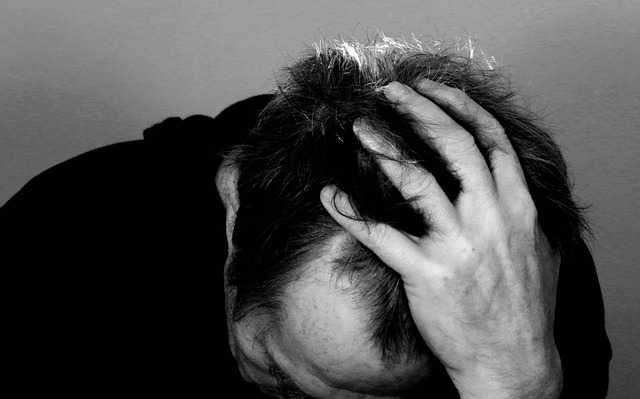Addicts often feel a great deal of shame about their addiction. It’s easy to see where this notion stems from. Myths about addiction contribute to the widespread belief that addicts are bad people. Popular opinion, television shows and media stories create the impression that addicts are selfish, weak and lacking self-control. The idea may also come from fear and a lack of understanding about addiction. It can be easy to judge something you have never experienced. People whose lives have been touched by alcohol abuse or drug addiction understand that substances can have a powerful hold on a person. Media outlets certainly don’t help in tackling myths about addiction. The news is much more likely to focus on a story about addiction than a human-interest feature on successful addiction treatment centers. Let’s explore some of the reasons why addicts aren’t bad people to reduce this stigma. Debunking myths about addiction relieves shame and encourages more empathy in society.
Addiction as Disease
Many people falsely believe that addiction is a character flaw. If you struggle with alcoholism or drug addiction, then you must be reckless or weak-willed. This misconception can influence how family members view addicted loved ones and addicts view themselves. This leads to additional shame, guilt and low self-esteem as the addiction worsens. It’s important to emphasize that addiction is not a character flaw. Addiction is a disease with clear physical and psychological symptoms. Furthermore, the psychiatric community recognizes alcohol use disorder and substance use disorder as mental health conditions. Abusing substances can also result in mental health issues as well, further fueling alcohol and drug addictions. Chemical dependency is real, and addicts understand the difficulty of giving up drugs and alcohol. Detox can result in extremely unpleasant and dangerous withdrawal symptoms. This has nothing to do with being weak.
Addiction Can Affect Anyone
Whenever anyone says that addicts are bad people, they are taking a moral position. They are claiming that they themselves could never fall prey to addiction. Claiming that addiction is a sign of poor character implies that you are too strong-willed to become an alcohol or drug abuser. This attitude is mistaken. Everyone is susceptible to alcoholism and drug addiction, to one degree or another. Under certain circumstances, anyone can develop substance abuse problems. Addiction can affect all kinds of people. You can be wealthy, successful and surrounded by loved ones, yet still become addicted to drugs or alcohol. Regardless of your race, religion, gender or sexual orientation, addiction can affect you. Of course, some groups of people may be at a higher risk of addiction. Contributing factors include family history, stress, genetics, mental health issues and poverty. And yet – and this needs to be reiterated – no one is immune. Addiction is also quite common. The US is currently experiencing an opioid epidemic. Many people use prescription painkillers for legitimate pain relief but then become addicted later on. Let’s not forget that the high from drugs (both legal and illegal) can make anyone vulnerable to addiction.
Addiction as a Form of Self-Medication
If we could view addiction in a more compassionate light, we would see that addicts aren’t bad people. For many addicts, their alcohol or substance abuse is a way of dealing with physical and emotional pain. The pain may stem from trauma, abuse or mental health issues. When you’re in pain, some people latch onto to anything that offers relief. Alcohol and drugs may provide a temporary escape from suffering. This relief is always temporary, however, and can cause a lot of damage. In order to further manage their pain, addicts will continue to use alcohol or drugs. Substance abuse may then transform into addiction. As your tolerance builds, you may need to increase the dosage or frequency to maintain the same relief. When we understand that addiction is a coping mechanism, we no longer view addicts as flawed individuals.
Addiction Can Depend on Environment
As mentioned already, quality of life conditions can affect the risk of addiction. These factors are often out of one’s control. Many people develop alcohol or drug addictions because they feel they are missing something from their life. If you grow up in an environment in which you don’t feel secure, then you could become addicted to drugs. A lot of addicts also feel alone where they live, lacking meaningful connections. Underprivileged areas may have fewer opportunities for work, education, community engagement and higher crime rates. This kind of environment can drive some people to addiction. As a case in point, statistics show that most Americans who died from opioid overdoses lived in deprived areas. When your environment affects your well-being, you will find other ways to find stability. Substance abuse steps in as a way of coping with difficult circumstances.
Challenging the Stigma
The sooner we replace fears and misconceptions with understanding, the easier it will be for addicts to get the help they need. Our treatment programs see addiction and recovery as a health issue, not a moral issue. Treatment centers play a necessary role in addiction treatment. Clients do best when their unique needs are addressed and they can focus solely on recovery. At The Ranch PA we treat the entire person, taking a holistic approach to healing that addresses physical and mental well-being, as well as personal growth.

